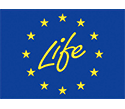Consultations on the National Programme of Great Snipe Protection kicked off
17 kwiecień 2014
 Consultations on the National Programme of Great Snipe Protection have kicked off. Its aim is to define a strategy allowing reducing or eliminating existing and potential threats to this species. The document will also specify a roadmap of activities assuring a sufficient state of conservation of the great snipe's population in Poland.
Consultations on the National Programme of Great Snipe Protection have kicked off. Its aim is to define a strategy allowing reducing or eliminating existing and potential threats to this species. The document will also specify a roadmap of activities assuring a sufficient state of conservation of the great snipe's population in Poland.
Works on creating the document will be carried out by teams of experts – 2 local teams and one national, consisting of specialists and representatives of RDOŚ in Białystok, Lublin and Warsaw, as well as of GDOŚ. Until now, 3 meetings have taken place – on March 11th in the RDOŚ headquarterts in Białystok, on March 12th in RDOŚ in Lublin, and on April 2nd in GDOŚ in Warsaw. The works are coordinated by Natura International Poland, responsible for creating the programme.
The aim of the meetings which have taken place up to now was to familiarize the members of expert teams with the project and its current state of progress, in particular with the outcome and the perspective of further studies on the great snipe, which will be essential in formulating the conservation programme. The task of the State administration (GDOŚ) was to present the procedure by which such documents come into force.
Our objective is also to include regulations concerning conservation of the great snipe in accordance with the programme in the Conservation Measures Plan for individual Natura 2000 sites. CMP lie within the responsibilities of Regional Directorates for Environmental Protection.
The national programme of great snipe protection will contain general guidelines for the entire country and detailed recommendations for individual areas where the great snipe occurs, based on as complete and up-to-date information as possible. An assessment of the current state of protection of the great snipe and its habitats, an analysis of the threats and their origins, and an approximate budget for the conservation measures will be also included in the document.
Given that the great snipe does not belong to conflictogenic species, and most of its population occurs in Natura 2000 sites, we hope that the national programme will come into force according to our plans, i.e. in mid-2016.
In the same time, we would like to address a public request for information on the occurrences of great snipes in Poland. We kindly ask to report both lekking sites and observations of startled individuals. The information should be reported to the coordinator of the study, Michał Korniluk, +48 530507007,
The expert group participating in the meetings consists of:
Michał Korniluk – Natura International Poland (contractor)
• Daniel Piec – Natura International Poland (contractor)
• Dr. Przemysław Stachyra – LTO (external expert)
• Marcin Urban – LTO (external expert)
• Dr. Adam Dmoch – RDOŚ Warsaw (external expert)
• Tomasz Chodkiewicz – OTOP Koordynator Monitoringu Dubelta
• Michał Manikowski – OTOP (external expert)
• Piotr Świętochowski – Wildlife Society Dubelt (Great Snipe) (external expert)
• Piotr Marczakiewicz – BbPN (external expert)
• Dominika Piotrowska – PTOP (Project Coordinator)
• Dorota Łukasik – GDOŚ (National Directorate for Environmental Protection), Department of Administrative Jurisdiction
• Anna Ronikier-Dolańska – GDOŚ, Head of the Department of Natural Resource Management
• Katarzyna Kaczorowska – GDOŚ, Department of Natural Resource Management
• Andrzej Langowski – GDOŚ, Department of Natural Resource Management
• Lech Magrel – Head of the Regional Directorate for Environmental Protection in Białystok
• Beata Sielewicz – Head of the Regional Directorate for Environmental Protection in Lublin
• Tomasz Bajdak – RDOŚ in Lublin
• Edyta Skorupska – RDOŚ in Lublin


